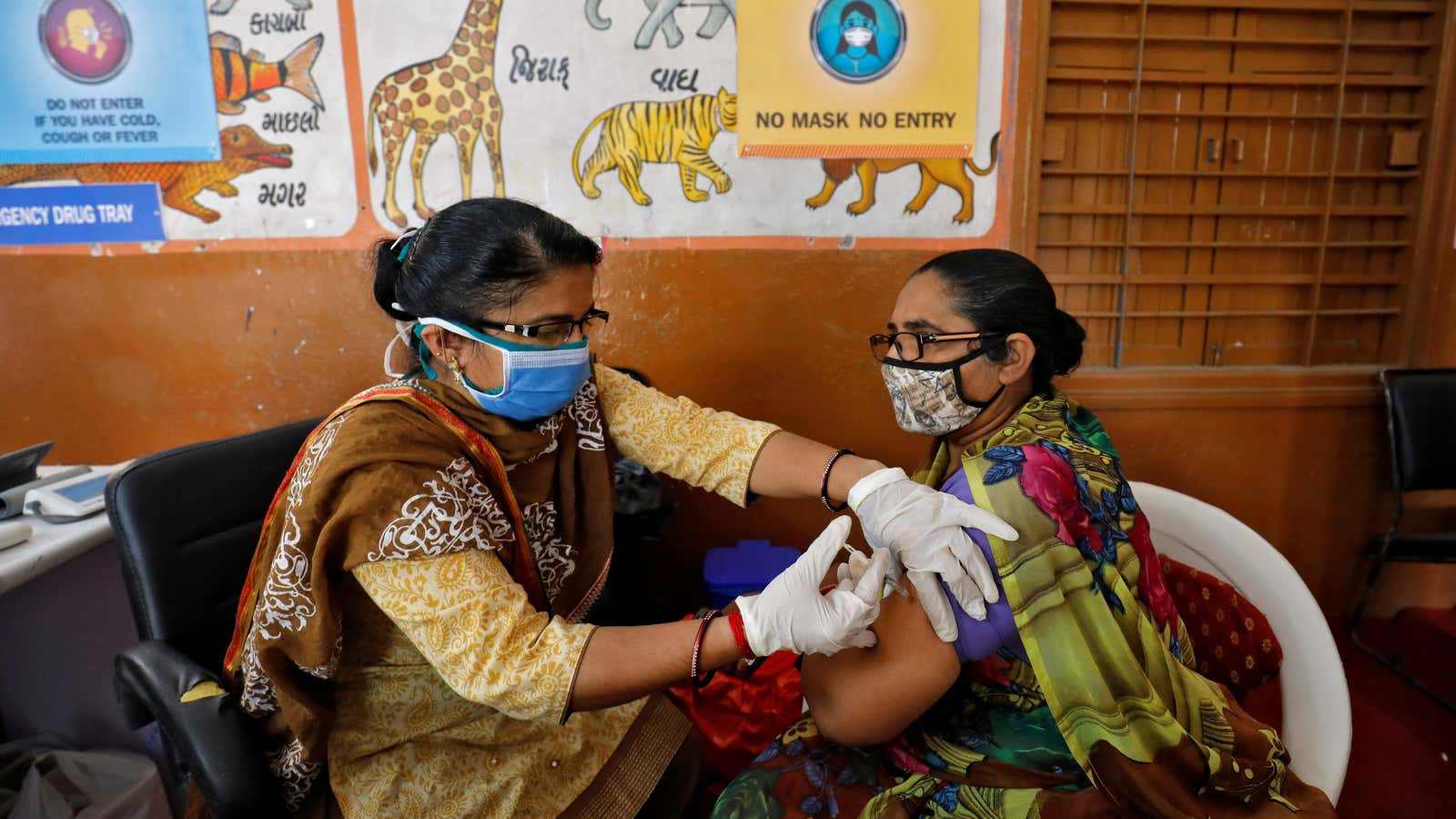After six weeks of beginning its Covid-19 vaccination drive for healthcare and frontline workers, India is all set to expand it to include the general population.
From March 1, the country will begin vaccinations against the novel coronavirus for those above 60 years of age, and vulnerable groups with co-morbidities aged above 45. The government estimates this section of the population to be about 270 million people, about 20% of India’s 1.3 billion.
These vaccines will be administered free of cost at government-run centres, while citizens will have the option to pay for the shot if they choose to go to a private hospital or healthcare centre. Currently, the government has authorised 10,000 public and 20,000 private centres to give out the shots.
India began vaccinating its healthcare and frontline workers on Jan. 16. As of yesterday (Feb. 24), 10.88 million people have received the first dose and 1.48 million have received the second dose of the two-dose Covid-19 vaccine. For the first phase of this inoculation initiative, the government has to give the vaccine to 30 million frontline and healthcare workers across the country.
During a cabinet briefing yesterday (Feb. 24), union minister Prakash Javadekar said that the government is working out the price of the vaccine at private medical centres. Two vaccines—Bharat Biotech’s Covaxin and Covishield, the Oxford-AstraZeneca vaccine manufactured by Serum Institute of India (SII)—are currently approved for emergency use in India. These vaccines are bought by the Indian government at a special price of nearly Rs200 ($2.76) per dose. Adar Poonawalla, CEO of SII, had indicated that the Covishield shots could cost Rs1,000 per shot in the private market.
The government is working out the finer details of how this second vaccination phase will be implemented.
Registering on the Co-WIN app
The government’s Co-WIN platform, a digital repository of all vaccination-related information, will be the mainstay of the vaccine initiative.
The Android version of the application is available for download, but the Indian government is yet to open it up for general users to sign up for the vaccine. Currently, it is only accessible to vaccine administrators and pre-registered beneficiaries.
This Covid-19 platform also has an integration with Aarogya Setu, India’s contact tracing app. Those who have received the vaccine will be able to download “vaccine certificates” via Aarogya Setu, which could eventually help with resuming work and travel, especially with “vaccine passports.”
In an interview with NDTV, Dr Randeep Guleria, the director of All India Institute of Medical Sciences, said that the list of beneficiaries has already been tabulated by the government, based on electoral rolls, and this data will be used to book appointments on the Co-WIN app. Those who are not on this list could get themselves registered at the vaccination centre with a proof of identity such as Aadhaar, India’s biometric identification number, he said.
Explaining co-morbidities
The Indian health ministry also has to stipulate what constitute co-morbidities for those aged between 45 and 60. The government expects this group to be as large as 170 million people.
Guleria explained that people with co-morbidities will likely need a sign-off from the physician first. “If you have your record, which shows that you have got comorbidities, you can go to any GP or any doctor, either in the government sector, in (the) private sector, and based on the commodities that you have and a one-page pro forma, which will just say that you have this comorbidities and if it’s signed and stamped by that doctor, then you are automatically included into the list,” he told NDTV.
